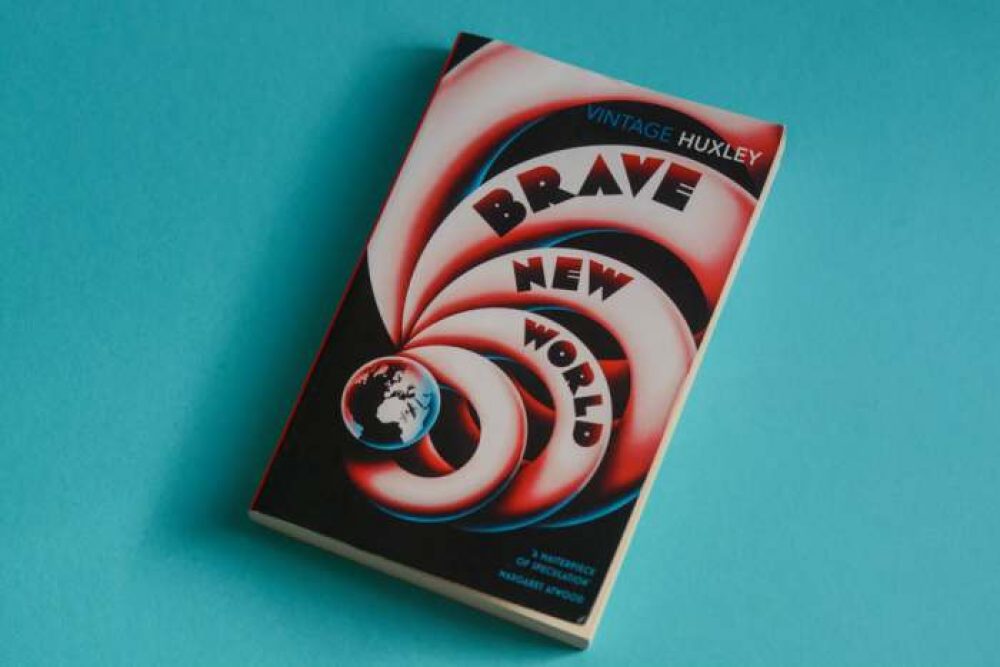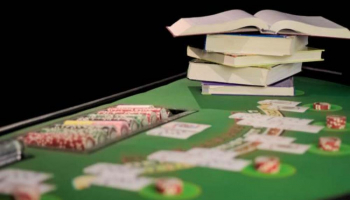
Brave New World by Aldous Huxley (1998-01-01)
26 used from $5.05
Brave New World is Aldous Huxley’s most popular and enduring work of science fiction. This dystopian classic predicts a terrifying vision of the world’s future, which doesn’t feel very different from our current society. The Observer, BBC, Modern Library, and other authoritative magazines have ranked it among the top 100 novels of our time, and you’ll soon understand why when you start reading it.
Sometime in the future, the World Controllers have managed to create an ideal society. The book opens with a sweeping tour by the Director of the Central London Hatchery and Conditioning Center (DCH), where they explain the fundamental concept of the way this new society works. People in this “perfect society” are factory-produced using genetic engineering and then assigned one of the five caste categories based on predetermined intelligence levels.
Alphas are the crème de la crème of this new society, trailed by the Betas, the second-most important people as determined primarily by scientifically-controlled and fated levels of intelligence. There are of course the Gammas, Deltas, and Epsilons. These castes, their necessity, and roles are defined by a group of ten World Controllers who are in total charge of the structured world.
Introduced to us early in the story, Mustapha Mond is one of the World Controllers. He’s responsible for teaching the factory-made people history lessons of strife and wars that took place in the build-up to the creation of the World State and introduction of the new system.
At face value, the World State is nothing short of a perfect society. Amid all of the smart use of recreational sex, brainwashing, drugs, and genetic engineering, all of the inhabitants are genuinely happy and content. That’s with the exception of Bernard Marx who has an ill-defined yearning to break free from the shackles of the new system. From the look of things, a trip to one of the few residual Savage Reservations may be what the doctor prescribed for him.
The Savage Reservations are harbors where old, non-genetically engineered human life still exists. Marx brings back one “savage” named John to London where he plans to spill the beans and humiliate the Director of Central London Hatchery and their social currency. Marx parades John around social gatherings and the factory-made people tolerate him in order to learn more about the Savage Reservation in New Mexico.
Unfortunately for him, John has taken a shine to Lenina and becomes too infatuated with her. He is intoxicated by the freedom of sexuality exhibited by Lenina, which doesn’t seem anything close to the monogamous notion of sex and love he was brought up to believe in. Depressed and longing for Lenina’s free love and affection, John decides to no longer accompany Marx, which essentially destroys his newfound social status and leads to his suicide.
Huxley’s Brave New World is the most speculative and most prophetic science fiction novel of the twentieth century, shedding a blazing and shocking yet almost now true light on the profound debate on happiness in contemporary philosophy. It has all the elements sci-fi readers love about fantasy, post-apocalyptic fiction, and dystopian societies.
As beloved fantasy novelist Margaret Atwood puts it: “[it is] as fresh, vibrant, and somehow shocking as it was when I first read it.” True to her words, this is one of the best sci-fi novels that you’ll read over and over again without losing their luster and profound prophecy. If you’re looking for a novel that’ll deeply influence your thinking about happiness, love, politics, and perhaps your historical view, you can get better than this.
Bear in mind that Brave New World was written in 1931 when Fascism and Communism were deeply entrenched in Italy and Russia, while aggressive Japan was on its course of war conquest in China, and Germany was slowly being engulfed by Nazism.
Not just that; the whole world was under the grip of the Great Depression. It’s quite impressive how Huxley could peer through all these murky and dark clouds and see a future world without plagues, famines, and wars – where the vast majority enjoys uninterrupted health, abundance, and relative peace.
Huxley uses his mastery of character development to paint a world consumed by consumerism, which offers a totally free reign to drug use, sex, and all things valued in terms of happiness. The supporting cast of characters is superb. John and Lenina, in particular, are well-crafted and expertly nuanced. Marx makes for a relatable character whose ability to rebel against a society that seems perfect in every way is admirable.
Fans of Stephen Grant’s Late, Late in the Evening, or Cixin Liu’s Of Ants and Dinosaurs are sure to love it.


 Amazon.com
Amazon.com 







